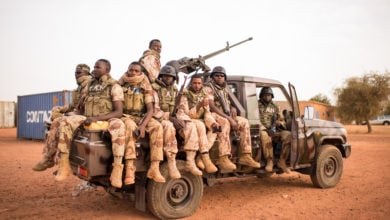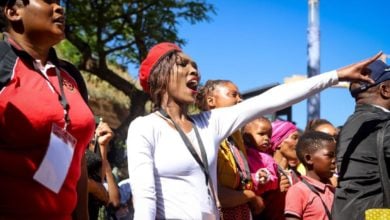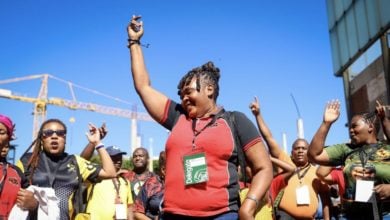On January 27, 1945, Soviet troops entered Auschwitz, Poland to liberate the 7,000 survivors of the Nazi death camps. This was a monumental day in history marking the beginning of the end of World War II and the triumph of socialism over fascism.
The death camp network at Auschwitz alone took the lives of over 1.1 million Jews, Roma, Poles, LGBTQ people, people with disabilities, and leftists. In its advance into Poland, the Red Army was headed straight for Auschwitz with the goal of liberating its prisoners.
While the largest and one of the most famous death camps, Auschwitz was not the first to be liberated by Soviet troops: in July of 1944, the Red Army liberated Majdanek, followed by Belzec, Sobibor and Treblinka. All of these camps were home to indescribable horrors: the purposeful destruction of lives, brutal slavery and heinous experiments conducted on racial minorities. Modern-day survivors of the Holocaust still recall the tremendous relief brought by the arrival of Soviet troops.
The Soviet Union sacrificed by far the most in World War II, losing 28 million lives between Nazi concentration camps and war casualties. Historians agree that without the powerful comeback of the Soviet Union on the Eastern Front, it would have been unlikely that the Axis forces would have been defeated.
The victory of the Soviet troops can be attributed not only to the determination of military commanders, but largely also to the heroism of Soviet civilians. In a series of feats that was not replicated anywhere in the West, the occupants of the smallest towns and villages joined together to fight to their last breath, sacrificing their lives just to keep the fascist troops away from Moscow for as long as possible. One of the most famous of these is the 1939 and 1941 defense of the Brest fortress, where soldiers and civilian occupants of the city of Brest, Belarus staved off Nazi troops until all were dead or taken prisoner. The occupants had barely any arms and could have chosen to retreat, but stood and fought instead.
The dedication of Soviet fighters and civilians to the cause of defeating fascism went beyond patriotism and a need to survive. Fresh from revolution, civil war, rapid industrialization and reconstruction of economic and social relations, the people of the USSR—now educated, with new inalienable rights and a sense of brotherhood with their fellow Soviet people—had another profound reason to fight the fascist scourge. Working people in the USSR were grateful for the chance at a life of equality and opportunity that socialism gave them, and the thought of giving the victory of the working class up to fascism was repulsive to them. They fought not only for their families and their country, but for their revolution and their class.
Today, schools in the United States teach students that the United States and Britain won World War II, and grudgingly admit that the USSR “helped.” The immense discrepancy in both contribution and sacrifice to the cause shows that this could not be farther from the truth. The involvement of the U.S. in World War II can be interpreted as almost entirely opportunistic: by joining the war so close to its end, the U.S. guaranteed that it would suffer few damages and still obtain the spoils in the form of resources and land, thus prospering while the countries directly impacted by the war struggled to rebuild.
A darker side to U.S. involvement in the fight against the Nazis emerges in the fact that U.S. intelligence had obtained the exact locations of the Nazi death camps, but the U.S. chose to not participate in liberation efforts for over three years after this information was obtained. Instead, during that time, many heroic revolts and escapes were organized inside the camps themselves, and finally several camps were liberated by Soviet troops, before U.S. forces had any part in liberation efforts.
We honor the heroes of the Soviet Union and the central role they played in freeing the world from a racist, destructive force. All fighters for liberation have much to learn from Soviet fighters. Their victory shows the dedication and power contained in a multinational socialist working class, united to defend their homes and their revolution.






